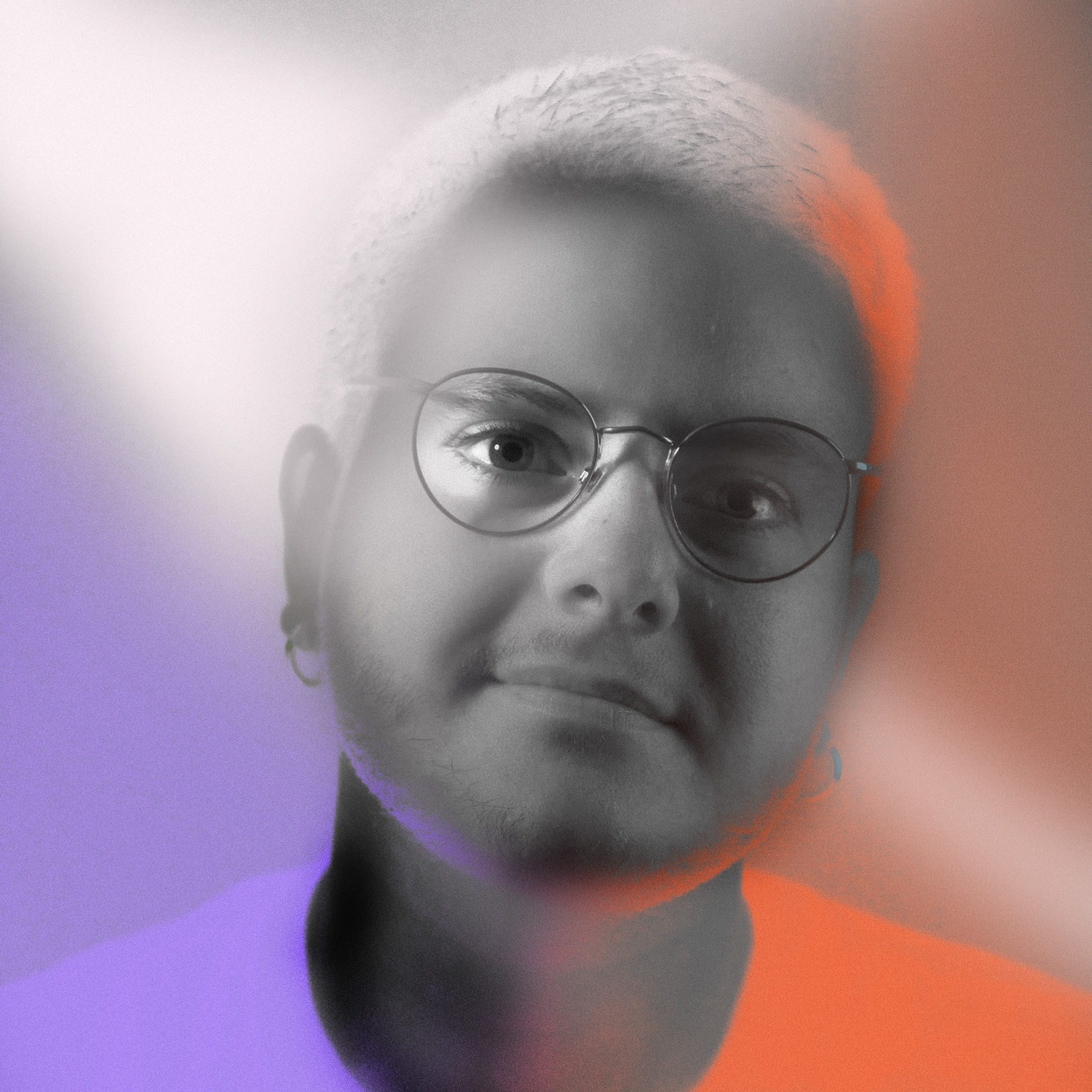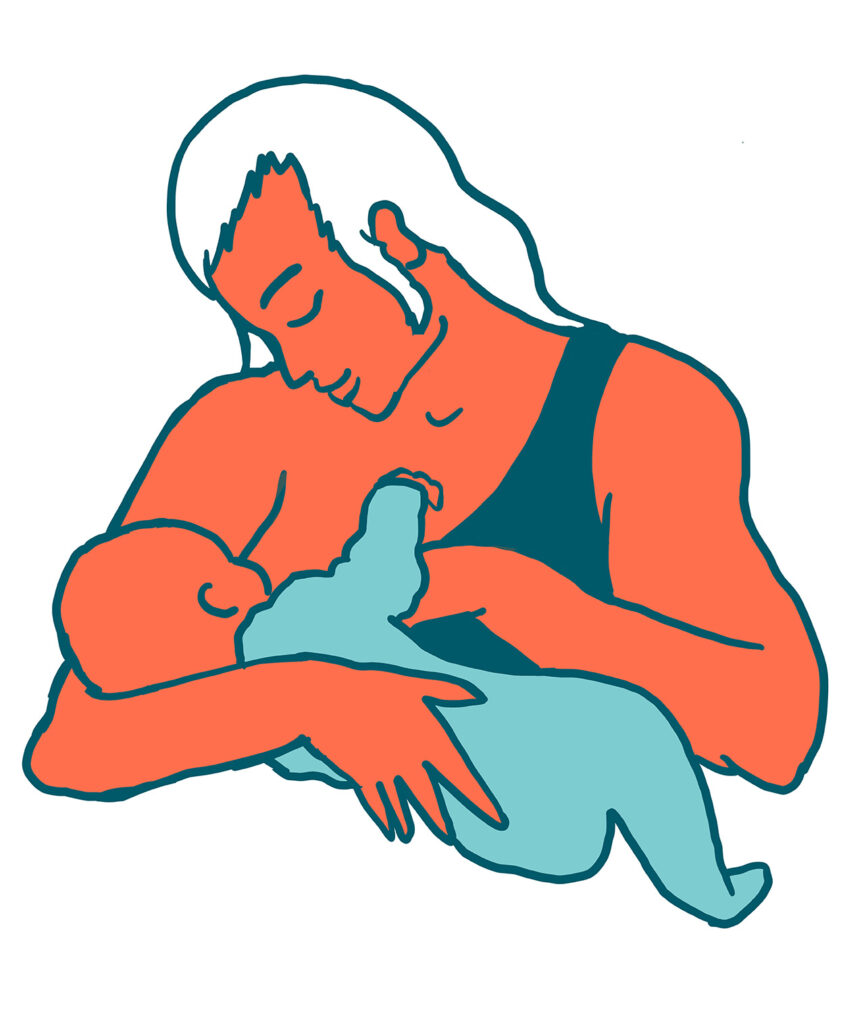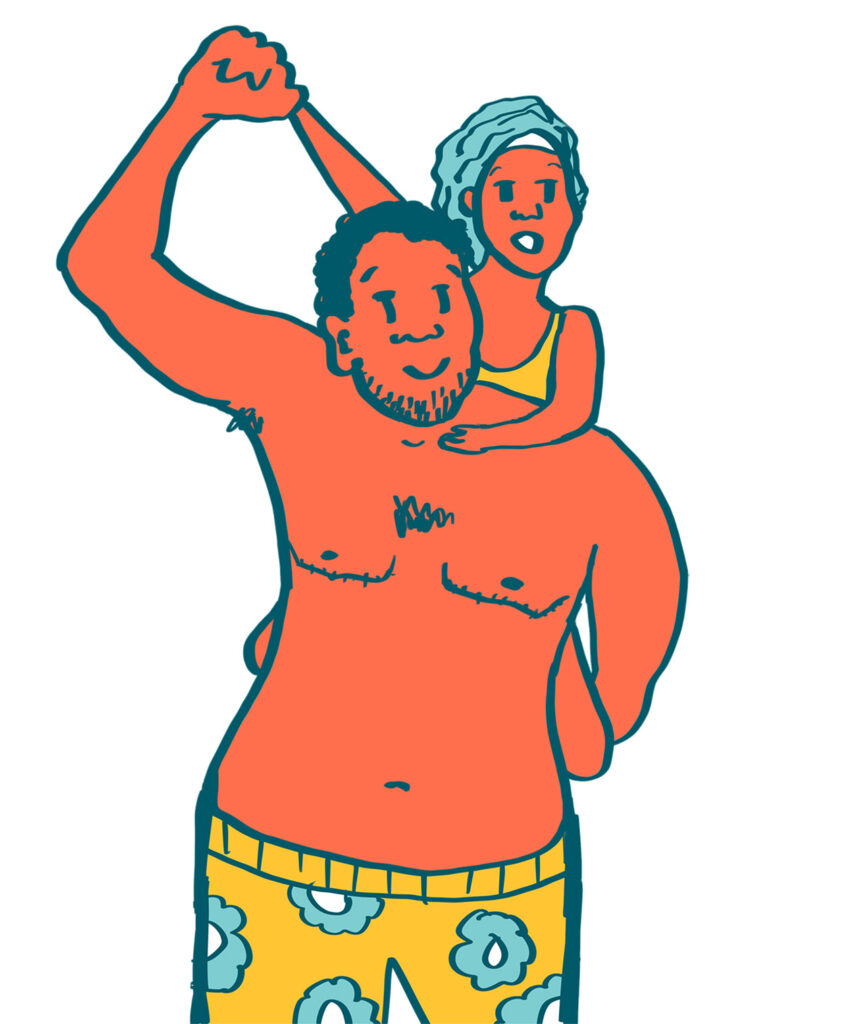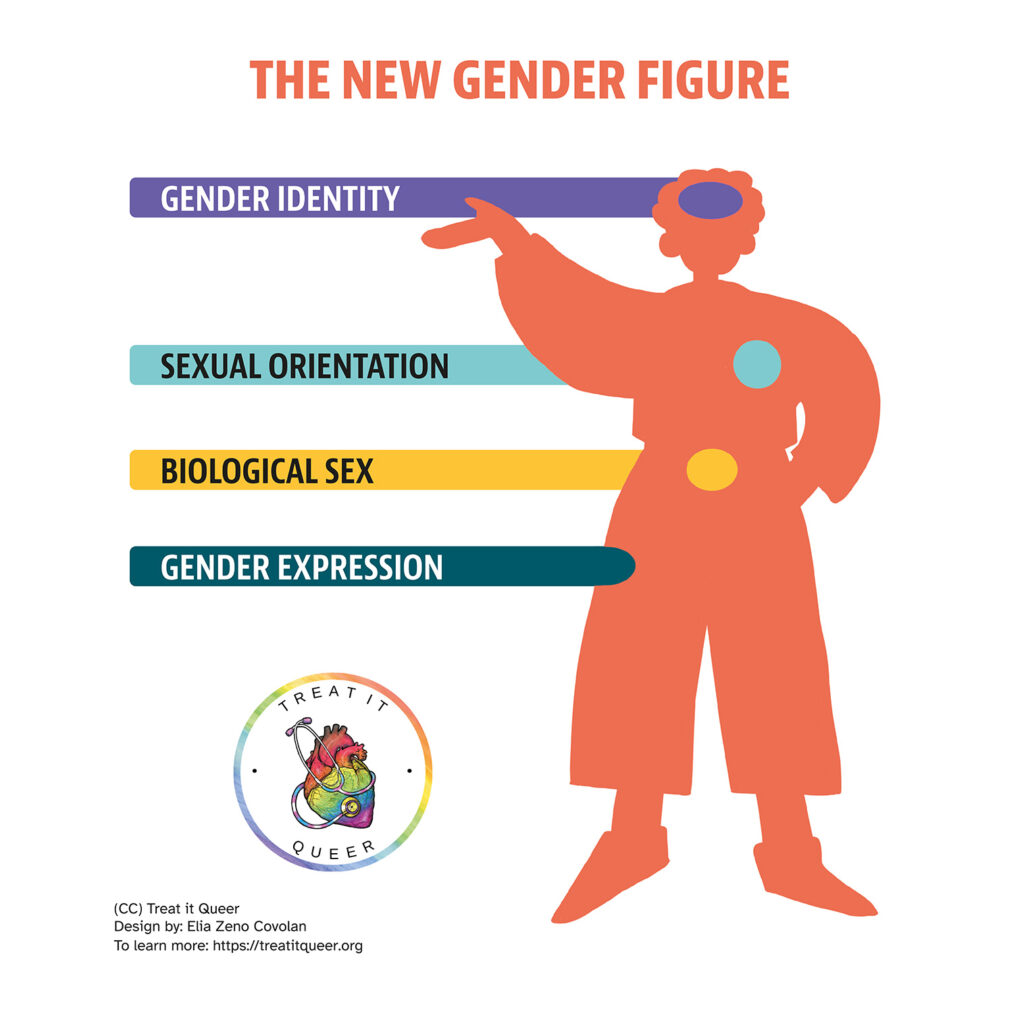Accessible
Queerness
Elia Zeno Covolan
they/them
Accessible Queerness is a project of the Treat it Queer Foundation, an international not-for-profit organization that advocates for health justice, with a particular focus on the queer community. Accessible Queerness aims to use technologies to make healthcare advocacy more inclusive and accessible, especially for queer people living with chronic illness, (sensory) disabilities and/or neurodivergence.
What will you be working on during the fellowship?
We aim to improve the Treat it Queer website and educational material according to the Web Accessibility Content guidelines. Specifically, we want to use Accessible and Universal Design principles to make our content accessible and inclusive for users with chronic illness and/or (sensory) disability including dyslexia, color blindness, sight impairment and for neurodivergent users. Our scope is to educate health professionals to provide accessible and inclusive health advocacy and to promote the development of accessible health education content.
To what future do you aspire?
We seek to cultivate a growing awareness and understanding of the existing health inequities affecting gender and sexually diverse people worldwide, as well as bring greater visibility to the real, lived experiences of queer people. We use an intersectional approach, examining the ways in which different axes of privilege and oppression simultaneously contribute to health inequities. The dismantlement of power dynamics related – and not limited – to gender, race and class and ability is central in our work.
What does being a risktaker mean to you?
Risktaker means to me employing my person and professional background for the wellbeing of our community through bottom-up grassroot projects. I am a transmasc, non-binary, neurodivergent graphic designer and accessibility consultant with disability. My work focuses on creating inclusive content by recentering marginalized people, and on translating complex concepts into accessible visual forms. I employ a mixed approach to thematic research in my work, through the lenses of qualitative sociology, design thinking, queer and crip studies.
The interview
1. What is the question we should definitely ask you (and how would you answer it)?
Which cute animal videos do you watch the most often?
I especially watch dugongs. They can eat up to 30 kilograms of seagrass daily and eat both day and night; they do not care about 8-hour shifts. Dugongs love warm waters and are social mammals but also enjoy alone time. But now and then, they must come out of the water to breathe. In shallow waters, they struggle to survive – they are goofy, and it is tough for them to turn over. As soon as they enter deep waters, they undulate their 400-900 kilos in a superb and elegant swim dance – a contest does make a difference.
2. A central part of your work is intertwined with the Dutch organisation “Treat it Queer”, which is dedicated to health justice with a particular focus on queer communities. Where do you see the most significant needs? Which challenges are you facing the most within your work?
“Treat it Queer” is a not-for-profit organisation led by queer healthcare professionals to educate students and other professionals about the health needs of queer people. Unfortunately, there is still a pervasive lack of knowledge and many research gaps when it comes to queer health. The healthcare system exacerbates health inequalities by posing great barriers for queer people to access it. Queer people need, as everybody else, first-line care such as a family doctor and emergency medicine. At the same time, however, they do have specific health needs regarding gender-affirming care, mental health, sexual and reproductive health and rights, for example.

3. Elia, your work is focused on different forms of accessibility. What does it mean for you, and why are intersectional approaches fundamental when discussing accessibility?
Accessibility, to me, means dismantling, brick by brick, the barriers that hinder equitable access to every aspect of life. Accessibility empowers those who usually experience conditions of exclusion or limitation, myself included.
If we truly want to contribute to making accessibility a reality, it is crucial to acknowledge that there are different axes of privilege and oppression that simultaneously contribute to social and health inequalities.
To dismantle power dynamics created and perpetuated by a society infused with and nourished by ableism, we must recognise the interconnectedness among this and other forms of discrimination, including the ones based on gender, race, class, and age. This ableist society required that a body must be capable of generating capital, shaping my reflection to consider the subjectivities excluded by this paradigm.
It is paramount to link chronic illness, disability, neurodivergence and queerness with other factors that render our bodies disposable, as they do not conform to the logic of capitalist production. We embody multiple identities that challenge this paradigm, and thus, we do not want to be perceived or to perceive ourselves through a single dimension.
I have discovered this richness in all the projects presented by the Risktakers fellows, projects that offer numerous opportunities for cross-pollination and the creation of transformative change.
4. During your time as a Risktaker fellow, you are thinking about possibilities to redesign “wayfinding” and signs (such as street signs, for example) in public spaces. Can you tell us a bit more about “wayfinding” and how it impacts people in their day-to-day life?
Due to a neurological condition, it is very challenging for me to orient myself in space and time. For years, supported by the people I share my daily life with, I have been trying to find solutions and strategies to overcome this different way of perceiving dimensions. Wayfinding is not just a discipline that deals with signage: in simplified terms, it refers to the set of solutions implemented to help individuals organise and interpret space, find their way, locate themselves, and navigate. By envisioning new ways in which we organise the usage of spaces, we can expand our possibility of movement and connection; also, incorporating elements created by the community tailored to our needs, we can create spaces that are more suitable and similar to us.
It is extremely difficult to find specific and organised information for individuals with chronic illness, disabilities, and neurodivergence. Many spaces automatically exclude us due to urban and architectural challenges, as well as the pace of movement.
I imagine spaces where resting and decompression areas are provided, signages that alert the presence of strobe lights, informative signs about epilepsy…there is an incredible amount of room for action.
My desire is to create a toolkit that reflects the needs that emerged from the lived experience of queer people with chronic illness, disabilities, and neurodivergent.

QUEER HEALTH: Knowledge in your pocket https://www.treatitqueer.org/products/queerhealthpocketcards
5. Can you tell us more about the people and networks you’re collaborating with?
I love being involved with grassroots community-based projects in the queer and the crip communities!
First, I am working with “Treat it Queer”, an international foundation dedicated to health justice. I collaborate as a graphic designer and illustrator. For example, I have curated the design and development of an educational toolkit about queer health for healthcare professionals.
Besides, I am a member of Al.di.Qua Artists (Alternative Disability Quality Artists), the first Italian professional association made of and for artists and entertainment workers with disabilities. Through AldiQua, I offer accessibility consultancy to cultural spaces and events such as theatre performances, festivals, and exhibitions, and I advocate for social justice.
I am also collaborating with Mara Pieri, a researcher at the University of Coimbra, Center for Social Studies. She works on disability studies and queer and crip studies through an intersectional approach. I curated the visual identity of Chroniqueers, a multimedia project about her PhD thesis on the experiences of LGBTQ+ adults with chronic illness in Italy and Portugal (www.chroniqueers.it)
6. Imagine a fully accessible world. What would it look like, and what are the potential steps we need to take to achieve a more just and equal society?
I envision an accessible world not as a place where everyone is healthy and perfectly fitting in but as a society that is no longer disabling and where individuals are not defined by their starting conditions.
I do not imagine the utopian world as a place where disabilities are absent. We can leave this to eugenics bullshit. It is not the individual’s condition that needs to be fixed, but rather the social context that has to ensure we can live a fulfilling life without systemic and systematic disadvantages and violence.
7. How do you, as a fellow, perceive the Risktakers Fellowship so far?
I find my mentor’s approach (or Nandita’s approach) incredibly empowering, and I feel the fellowship is tailored to accommodate my needs as a neurodivergent individual with significant aphasia. Even before working on goals, we engaged in the process of exploring desires and meta-work-related needs. I observe a strong focus from the team on personal requirements, individual timelines, and modes of expression. Nandita, who is assisting me through her guidance, helps me to identify my needs, clarify how to actualise my work and provides supportive meetings.
The opportunity to network with other fellows is also a valuable resource as it allows for finding the necessary resources and cross-pollination within the same journey to enrich the project and benefit the progress of all involved.
And, of course, I am eagerly looking forward to meeting everyone and witnessing the presentation of everyone’s work in Berlin later this year.

QUEER HEALTH: Knowledge in your pocket https://www.treatitqueer.org/products/queerhealthpocketcards